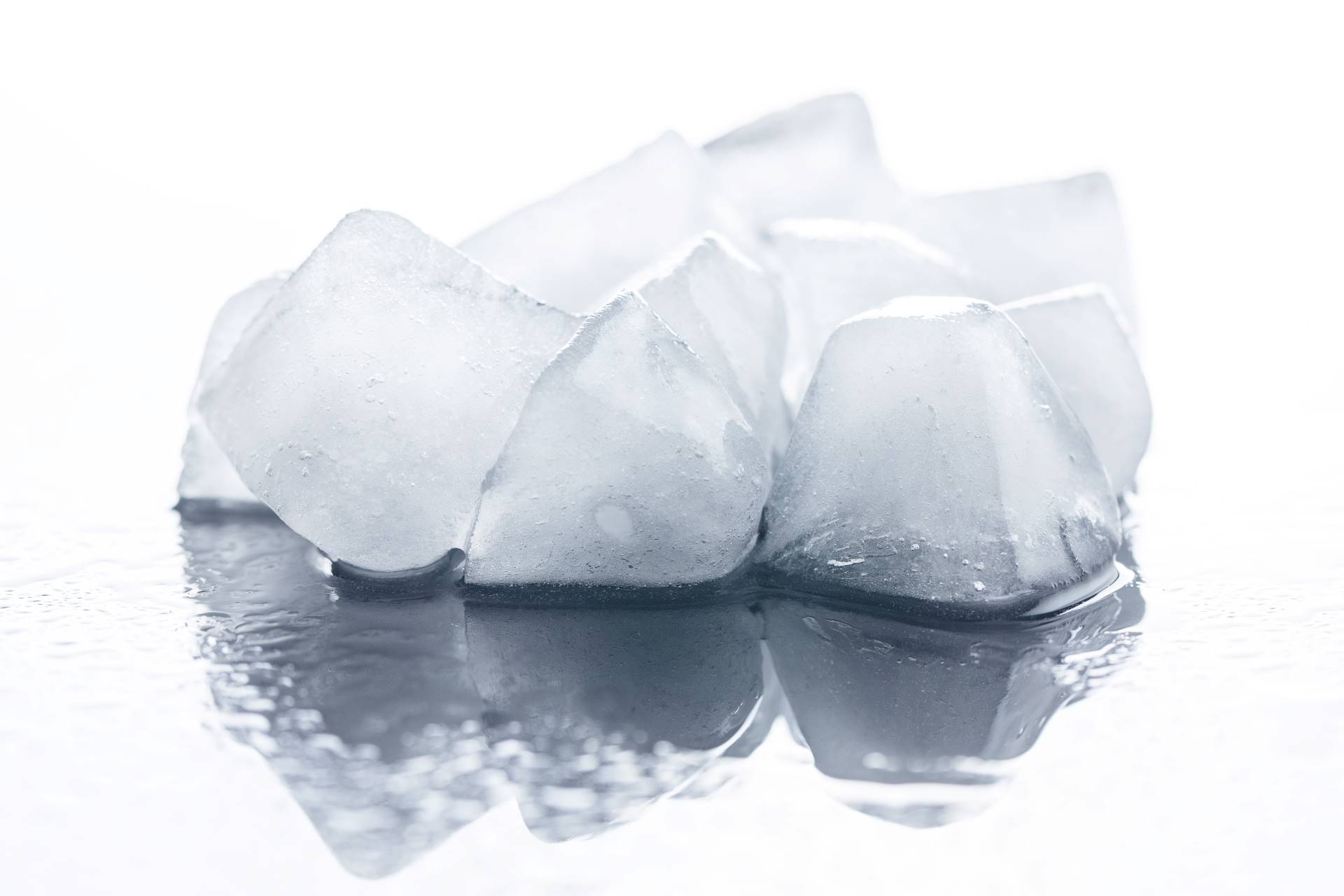In the fast-paced world of commercial kitchens and bars, ice machines play a crucial role in keeping drinks cool and creating refreshing cocktails. These essential appliances come in various sizes and offer unique features to cater to the specific needs of different establishments. With stainless steel evaporators, ice machines ensure efficient ice production for uninterrupted service.
However, regular cleaning and maintenance are vital to keep these machines running smoothly. Neglecting proper care can not only affect the quality of the ice but also lead to common problems like clogged condensers or water filters. To maintain food safety and hygiene, it’s crucial to prioritize high-quality ice production.
Commercial ice machines can last between 5 to 10 years with proper care, making them a valuable investment for any establishment. Regular cleaning should be conducted at least once every six months, and the size of the ice machine should be chosen based on the daily ice requirement of the establishment and the type of drinks being served. By understanding the importance of ice machines in commercial settings, businesses can ensure a consistent and enjoyable experience for their customers.
Key Takeaways
- Ice machines are crucial for commercial kitchens and bars, providing cool drinks and refreshing cocktails.
- Regular cleaning and maintenance, including the use of water filters, is necessary for efficient ice production and high-quality ice.
- Choosing the right size of ice machine based on daily ice requirements is essential for optimal performance.
- Troubleshooting common problems like clogged condensers or water filters is recommended to keep the ice machine running smoothly.
- The choice of ice type should be based on the specific drinks being served.
Benefits of Using an Ice Machine Commercial
Efficient Cooling and Refreshing Cocktails
Ice machines are essential for commercial kitchens and bars as they provide efficient cooling and are crucial for creating refreshing cocktails. With their ability to produce a large quantity of ice quickly, ice machines ensure that drinks stay cool and satisfying, even during peak hours. This not only enhances customer experience but also boosts the overall efficiency of the establishment.
Variety of Sizes and Features to Cater to Different Needs
Commercial ice machines come in various sizes and offer unique features to cater to the specific needs of different establishments. Whether you run a small café or a bustling nightclub, there is an ice machine available to suit your requirements. These machines can produce different sizes and types of ice, such as cubed, crushed, or nugget, allowing you to customize the ice to complement the beverages you serve.
Stainless Steel Evaporators for Optimal Ice Production
To ensure optimal ice production, commercial ice machines often utilize stainless steel evaporators. These evaporators are known for their durability and efficiency in transferring heat, resulting in faster ice formation. Stainless steel also provides a hygienic surface that resists corrosion, ensuring the ice remains safe and free from contaminants.
When choosing an ice machine, it is important to consider the daily ice requirement of your establishment to select the appropriate size. Regular cleaning and maintenance are necessary to keep the machine running smoothly, and using a water filter is recommended to maintain the quality of the ice. Troubleshooting common issues like clogged condensers or water filters can help prevent disruptions in ice production.
In conclusion, investing in a commercial ice machine offers numerous benefits for businesses in the food and beverage industry. From efficient cooling to the creation of refreshing cocktails, these machines are essential for maintaining customer satisfaction and improving overall operational efficiency.
Maintenance and Cleaning Guidelines for Ice Machine Commercial
Regular Cleaning and Maintenance for Smooth Operation
Ice machines are essential for commercial kitchens and bars to keep drinks cool and create refreshing cocktails. To ensure their smooth operation and longevity, regular cleaning and maintenance are necessary. Cleaning the ice machine at least once every six months is recommended. This involves removing and sanitizing all removable parts, such as the ice bin and water distribution system. It is also important to clean the stainless steel evaporators, which are commonly used in ice machines for efficient ice production. Regular maintenance includes checking and replacing worn-out components, such as water filters and condensers.
Importance of Water Filters for Quality Ice
Using an ice machine without a water filter can affect the quality of the ice. Water filters remove impurities, such as minerals and sediments, from the water before it freezes into ice. This ensures that the ice produced is crystal clear and free from any unpleasant tastes or odors. Regularly changing the water filters is crucial to maintain the quality of the ice and prevent clogging or damage to the machine.
Choosing the Right Size Based on Daily Ice Requirement
The size of the ice machine should be chosen based on the daily ice requirement of the establishment. It is important to consider factors such as the number of customers served and the types of drinks being served. Commercial ice machines come in various sizes and have unique features to cater to different needs. Investing in a machine that can produce enough ice to meet the demand of your business is essential to avoid running out of ice during peak hours.
Troubleshooting Common Problems
Like any other machine, ice machines can experience common problems that may affect their performance. It is recommended to troubleshoot and address these issues promptly to avoid downtime and ensure continuous ice production. Common problems include clogged condensers or water filters, malfunctioning sensors, and leaks. Regularly inspecting and maintaining the machine can help identify and resolve these issues before they escalate.
In conclusion, regular cleaning, maintenance, and troubleshooting are crucial for the smooth operation of commercial ice machines. By following these guidelines, businesses can ensure the production of high-quality ice, which is important for food safety and hygiene. With proper care, commercial ice machines can last between 5-10 years, providing great value for businesses in Australia.
Ensuring Food Safety and Hygiene with Ice Machine Commercial
Importance of High-Quality Ice
In the fast-paced environment of commercial kitchens and bars, having a reliable ice machine is essential for ensuring food safety and hygiene. High-quality ice not only keeps drinks cool but also plays a crucial role in creating refreshing cocktails. Ice machines come in various sizes and have unique features to cater to different needs.
Proper Care to Prolong Lifespan of Commercial Ice Machines
To maximize the lifespan of your commercial ice machine, proper care and maintenance are vital. Regular cleaning and maintenance help keep the machine running smoothly and prevent any potential issues. Stainless steel evaporators are commonly used in ice machines for efficient ice production. Additionally, using an ice machine without a water filter can negatively affect the quality of the ice.
Recommended Cleaning Frequency
To maintain optimal performance and hygiene, it is recommended to clean your ice machine at least once every six months. Regular cleaning helps remove any buildup of dirt, bacteria, or mineral deposits that can compromise the quality of the ice. Troubleshooting common problems like clogged condensers or water filters is also recommended to ensure uninterrupted operation.
Commercial ice machines can last between 5 to 10 years with proper care. By investing in routine maintenance and cleaning, you can prolong the lifespan of your ice machine and save on costly repairs or replacements.
Remember, the choice of ice type depends on the type of drinks being served. Whether you prefer cubed, crescent, or crushed ice, selecting the right ice machine size and features based on your establishment’s daily ice requirement is essential for delivering refreshing and safe beverages to your customers.
Choosing the Right Ice Type for Commercial Ice Machine
When it comes to selecting the right ice type for your commercial ice machine, there are a few factors to consider. The type of drink being served plays a significant role in determining the optimal ice type. Different beverages have distinct requirements to ensure the best taste and presentation.
Consideration of Drink Type for Optimal Ice
For carbonated beverages, such as sodas and sparkling water, it’s crucial to choose an ice type that minimizes dilution. In this case, smaller ice cubes or ice nuggets work best, as they have a larger surface area to volume ratio, resulting in slower melting.
On the other hand, cocktails and mixed drinks often benefit from larger ice cubes. These larger cubes melt slowly, keeping the drink cool without diluting it too quickly. They also add an appealing aesthetic touch to the glass.
Types of Ice for Various Beverage Requirements
For blended drinks like smoothies and frozen cocktails, crushed ice or flake ice is ideal. These types of ice provide a slushy texture and blend seamlessly with the other ingredients.
For chilling wines and other spirits, using ice spheres or ice cubes with a slight hollow in the center is recommended. These shapes maximize the cooling surface area while minimizing dilution.
In summary, selecting the right ice type for your commercial ice machine is crucial for delivering the best beverage experience. Consider the drink type and its specific requirements to ensure optimal taste, presentation, and customer satisfaction.
Frequently Asked Questions
What are ice machines used for?
Ice machines are essential for commercial kitchens and bars to keep drinks cool and create refreshing cocktails.
What are the different sizes of ice machines available?
Ice machines come in various sizes to cater to different needs.
What are stainless steel evaporators used for in ice machines?
Stainless steel evaporators are commonly used in ice machines for efficient ice production.
How often should I clean and maintain my ice machine?
Regular cleaning and maintenance are necessary to keep the ice machine running smoothly. It is recommended to clean the ice machine at least once every six months.
Why is it important to use a water filter with an ice machine?
Using an ice machine without a water filter can affect the quality of the ice. A water filter helps remove impurities and ensures clean and clear ice.
How do I choose the right size ice machine for my establishment?
The size of the ice machine should be chosen based on the daily ice requirement of the establishment. Consider factors such as the number of customers and the type of drinks being served.
What should I do if my ice machine encounters common problems?
Troubleshooting common problems like clogged condensers or water filters is recommended. Refer to the user manual or seek professional assistance if needed.
Why is high-quality ice important for food safety and hygiene?
High-quality ice is important for food safety and hygiene. It helps prevent contamination and ensures the safety of the beverages served.
How long can a commercial ice machine last?
With proper care and maintenance, commercial ice machines can last between 5-10 years.
What factors should I consider when choosing the type of ice for my drinks?
The choice of ice type depends on the type of drinks being served. Consider factors such as melting rate, appearance, and how well the ice fits in the glass.



